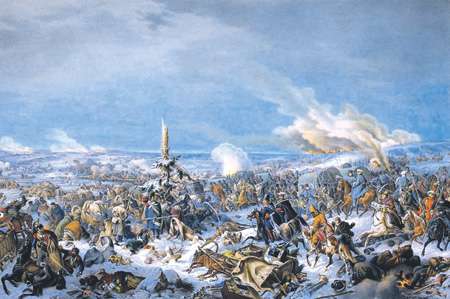Does not meet the economic potential of the great-power policy turns out to Russia’s major crises
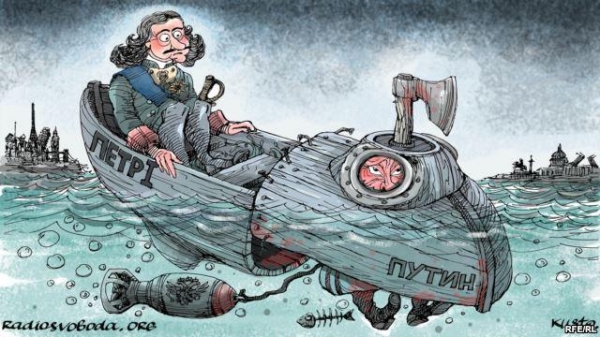
Yuri Zhigalkin
Why NATO and Russia cannot find common language? On the shoulder if Russia Russian foreign policy? Why the Russian elite is not able to benefit from the experience of the French elite? The Kremlin’s dilemma: with Europe or China?
These and other questions we discuss with Richard Belingham, Professor of College the Citadel in South Carolina, Eric Shiryaev di, a political scientist, Professor at George Mason University in Virginia and author David Satter.
Commenting on the ended nothing on Wednesday for the first two years, the meeting of the Council Russia – NATO, American commentators agree that particular outcome of the meeting was naive to expect, given the acuteness of the contradictions between NATO and Russia.
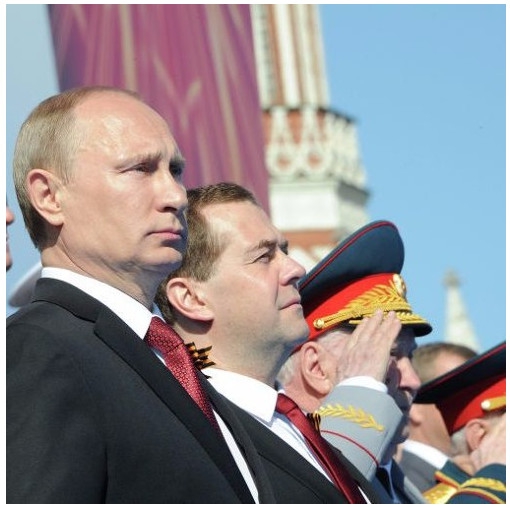
The fact that a relatively long conversation, the Russian representative to NATO with the ambassadors of 28 countries-members of the organization regarded as a “sign of progress”, just because other reasons for predictions of the restoration of even rudimentary forms of cooperation between Moscow and NATO is not. Experts quoted by the American Newspapers, are not able to converge on acceptable strategies of relations with Moscow. Christian Science Monitor quotes the former commander of American forces in Europe Admiral James Stavridis, who sounds most conciliatory. He offers to confront Russia when it behaves aggressively, but, on the other hand, focus not on confrontation but on cooperation. Former U.S. Ambassador to Ukraine William Taylor says in an interview with the newspaper that Vladimir Putin is impossible to deal with, because no one can figure out what’s on his mind. Congressman Steve Allowed warns that Putin is convinced that an adequate response from the West to the Kremlin’s actions will not, and therefore you can expect many unpleasant surprises. That is the first thing Putin needs to give a harsh answer.
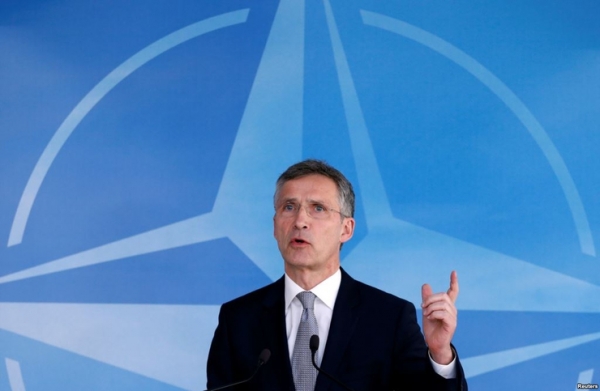
NATO Secretary General Jens Stoltenberg speaks
after the meeting of the Council Russia-NATO
That hope for productive dialogue with Russia, most likely, naive and at the very least very premature, warns an authoritative American historian and political scientist Stephen Kotkin, whose article “the perennial Russian geopolitics” appeared in the journal Foreign Affairs prior to the meeting in Brussels. According to Kotkin, normal cooperation with Russia of Vladimir Putin is impossible, because that in their foreign policy views back to great-power geopolitical settings their predecessors. Russia’s problem is, in the opinion of the historian that she is never due to economic backwardness could not and cannot today afford such a large-scale foreign appetites. And until then, until it will correlate their appetites with the possibilities, you feel comfortable in the role of only one of many influential European powers, like France, for example, it is doomed to stagnation and possible collapse.
Similar comments were made by a former assistant to President Carter for national security Zbigniew Brzezinski in the journal The American Interest. He believes that Russia’s future depends on its ability to join Europe as a nation state. Otherwise, he warns, her illusory hope of creating a Eurasian Union under its own beginning, shatter, but by that time it will become a kind of appendage of China, which in turn seeks to become a Eurasian hegemon.
Professor Richard Ebeling agree that Russia, by its economic opportunities could hardly claim the role of one of the so-called “great powers”.
– If you define “great power” as a country with economic potential to adopt international policy, in comparison with the leading Western States, the Russian Federation in the last two and a half centuries was considerably weaker than them. For example, the industrial revolution touched on Russia a few decades after the UK, France and even Central European countries. Economic growth in Western countries, the development of science and technology, the creation of capital in all this Russia is far behind. A simple example: the first private industrial Bank was established only in 1864, a few centuries later than in Europe. Yes, you can say that the Russian economy was not commensurate with the ambitions that were in Russia, if compared with European countries with which it competed.
– What, do you think the probability that Russia, or rather, the Russian elite is aware of this reality today and will bring its ambitions in line with, so to speak, objective possibilities, that is, go the way France and other former empires, contenting himself with the status of only one of the leading countries of the world?
– Of course, you can always say that it is possible in principle. But even in the French case, this process is quite ambiguous. The French have accepted the idea that they can no longer afford to be “great military power”, but I would say that they are not lost, if I may say so, “Imperial” sense of self. They are, for example, has maintained military bases in many African countries – the former colonies and often used their troops to support the governments of these countries. France pursues a policy of “soft cultural imperialism”, by subsidizing the use of the French language in these countries, trying to counter what they described as a global threat to national culture presented in English. But at least, France could find a more modest niche in global politics. Russia could follow that path, but it’s hard to imagine that the Russian elite wants to get rid of such a convenient tool of social manipulation, as the idea of a “great state”. Just look how much political dividends, the Russian authorities brought a relatively small campaign in Georgia, in Ukraine, in Syria. American economist Mancur Olson wrote in the eighties of the famous book “the Rise and decline of Nations”, in which he asks the question: what can be a reason for a radical shake the state institutions, whereby the company recognizes the need for change and is taking them? He came to the conclusion that in the modern era there were only two similar examples: Germany and Japan. Their defeat in the Second world war led to a complete restructuring of political institutions on a new Foundation, the society was forced to recognize the futility of previous ideologies. Nothing similar is observed in Russia. Communist ideology was condemned, the Soviet Imperial past is exhibited in a favorable light, despite the calamities that it has brought the surrounding countries.
– How is the West to do business with Moscow? He can not choose a solid line, to find a thread strategy.
I assume that the most realistic is a modified version of the strategy of “containment”, once proposed by George Kennan. Nobody is talking about a new cold war or “iron curtain”. In my opinion, among the Western allies have understanding for the fact that attempts by Russia’s expansion in the so-called “near abroad” cannot be tolerated, but, on the other hand, they are, roughly speaking, not worth military conflict with Moscow and do not create, as in the past, the threat of military confrontation. Those who is an object of interest of the Kremlin, will be supported economically, financially, it is possible that they will be provided with weapons. In short, the objective of this strategy is to make it clear to Moscow that if she would act aggressively, it would have to pay for a high price, even if she is convinced that she can take the upper hand in the confrontation with its small neighbor. I don’t know what you can offer, in addition to this strategy.
– How long, from your point of view, the Kremlin will be able to afford foreign policies of the “great state”? Can she in the present circumstances cause financial collapse?
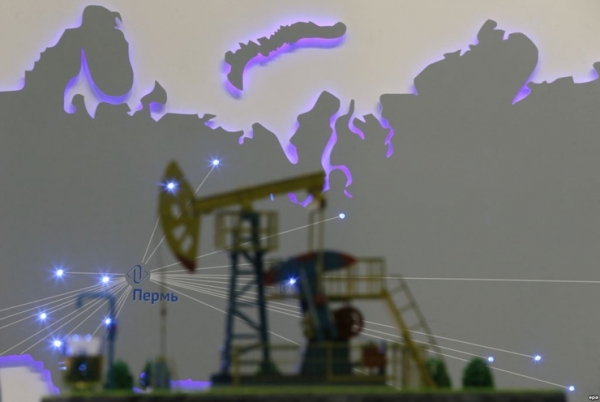
– It is obvious that the price of oil will determine economic situation in Russia in the foreseeable future. If they will be, I suspect, in the range from 25 to 45 dollars per barrel, the Kremlin will not only increase public expenditure, but also to maintain them at current levels. How he will dispose of monetary income, he will direct them on financing of social expenditure or for the army, hard to say, but it is clear that incomes of Russians grow. In terms of collapse, it is possible to outline a scenario where in the event of a further fall in the price of oil ever runs out of currency reserves saved for a rainy day, in the face of ongoing financial sanctions, the government won’t have funds even for the most necessary expenses. But the most likely still in the foreseeable future, the economic stagnation and slow extinction. It can lead the country to a situation where reform will be inevitable, but it will likely take several years, I don’t see anything like this in the near future.
– Eric Shiryaev, why, from your point of view, does not add up relations between Russia and the West, Russia and NATO?
– First, probably, it is a strong deep disappointment and leaders, and experts who are engaged in Russia, what is happening today in the country, says Eric Shiryaev. Liberal and conservative plan experts and politicians are very disappointed in Russia’s policy the last 6-7 years. Second, of course, the behavior of Russia. Today we discussed in class, Russian policy and Russian-American relations, since 2000. Even the quotes that came from the Kremlin, it was possible to understand that the relationship will not be normal, because it was evident that there is no desire in Moscow to improve relations, what would the West do. West was accused that he does not want to cooperate with Russia’s equal and keeps Russia as a Junior partner. West, in turn, seems to want to find contacts with Russia, because they do not believe in such contacts and improving relations. Russia did not want this for a long time. Therefore, most likely, or it’s just a game, or attempt to reconcile without much belief in what is possible as a couple that gets divorced, everything is resolved, but nevertheless go to a psychologist to think a bit to delay your divorce.
– David, why does not work contact between Russia and the West and NATO in this case?
I think these contacts are doomed, because Russia in its present state is not able to participate in the task of securing world stability, in which the leaders are a democratic country, says David Satter. – The leaders of Russia understand that the model of stability and democracy, which presupposes the West, which involve members of NATO, it is detrimental to the Russian regime, although it may be advantageous for Russia. Because it is clear that the only reasonable path for Russia — Western support and cooperation in strengthening them. It actually provides not only the security of Western countries, but Russia’s security and global stability. But this assumes still respect democratic principles, respect not only towards other countries but also within countries. And in such circumstances, those who supervises over Russia, could not retain power.
– Eric Shiryaev, American historian Stephen Kotkin in his long article in a respectable journal Foreign Affairs in General writes off such behavior of the Kremlin in traditional great-power approach to foreign policy and writes that this approach was an unreasonable burden on Russia and its economy, has repeatedly led to heavy defeats and crises in the nineteenth and twentieth centuries. He insists that Russia was and is a weak country, in whose interest a different behavior. You consonant with this view?
– In General, Yes. This is not a new concept – for many years already discussed the question of what those empires and States which weaken, a lot to take in. Many countries take on more obligations than they can achieve in reality. In my opinion, Professor Kotkin puts forward the idea that Russia takes too much upon himself. And it is simply related to the cultural and political ambition and the inability to critically assess their capabilities, their strength. Interestingly, the same thing often happens with France, with Germany, especially with America. But a huge force here, and intellectuals, and politicians talk, criticize and doubt that America needs so much to take, and this is a healthy process. In Russia this healthy process is not happening, unfortunately. Too many people in politics and in science and environment journalists believe that Russia can overcome, not so much to overcome, but to come forward. So ambition through the roof. When there is no criticism, it is always bad. Professor Kotkin argues that Russia, unfortunately, drunk with ambition, so there are such difficulties. That is, you need rational measurement capabilities and their potentials, then there will be a substantial change in favor of the welfare of the people and in favor of the country.
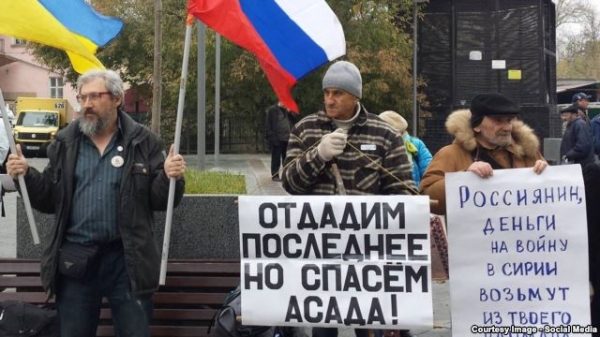
– David Satter, why in fact Russia would not lead a seemingly sensible policy, consistent with its capabilities, not to move in this great track, which in the past has led her to great disappointments and shocks? The Kotkin, for example, mentions the Crimean war, the war with Japan, WWI and the cold war.
– Now is a way to divert attention of the people. If we look at Russian war, the first Chechen war it was a small victorious war, which was designed to raise the rating of Yeltsin, who suffered from incompetent policy of privatization and the impoverishment of the Russian people. Second Chechen war – it was a maneuver to save those who were actually robbing the country. War in Ukraine – it was also attempted to divert attention from the real lessons of the Ukrainian Maidan and the ability of people to organize themselves against a kleptocratic government. The war in Syria attempted to divert attention from the failure in Ukraine. We see that there is not so much the question of great-power ambitions, but the desire of a small group to retain power and to use mass murder in warfare to distract from their real intent.
Professor Shiryaev, based on this interpretation of the behavior of the Kremlin, the Council of the Russian elite to follow the example of French counterparts and to adjust their foreign appetites with the possibilities, apparently, is not feasible?
– Most likely not. I will speak, perhaps, as an improviser, my colleagues-scientists will be for me to criticise, if they knew about it, but perhaps there are countries and States have some type of genetic reasons, not biological, but cultural, which do not allow certain people to get ahead and to create a political culture that could be more favorable for the well-being of the population. This kotlinska the idea that Russia has too much ambition and too little potential is likely in this case and is valid. These ambitions are not reduced. Second, from the point of view of education and values, the differences between the French elite of, say, American and Russian essential. Largely values are separated, but one significant difference is that in Russia the notion of the state and understanding of the personality merge. In America, on the contrary, for us the state in America is something that we create are more important than the state. France is somewhere in between the concept of all this, European values. Russian the more Hegelian notion that the state is us, we are the state. In this plan somehow rise to the French mentality will take a generation at least. Everyone who is in power today, are the children of the 50’s and 60’s, it is our generation that saw nothing more than communism. Our mentality change possible, but it will be very difficult to do.
– David Satter, a recipe, so to speak, save Russia just offered another influential American strategist, a former adviser to the President on national security Zbigniew Brzezinski. The article in the magazine The American Interest , he wrote almost about the same of what Kotkin writes. Say, Russia from Empire has turned into a national state, which would be worth for the sake of their own future to find their place in Europe and not to carry traditional geopolitical ambitions?
– I would not quite agree with this. I believe that Russia’s future depends on the evolution of the relations to the individual man, he becomes a valuable. You can have identical attitude to the value of human life in a nation state or nation state. It is Russia that will self-destruct due to the fact that she, not only her leaders, but the population, too, does not understand how important this is. The tragedy of Russia, and it is a fact that Russian people are so humiliated regarding state and so are replaceable in the eyes of the state, the powers that be that they are not capable of democracy. But if these conditions will change, the situation in Russia is also subject to change. And I think that in talking about the ambition of Russia, the lack of ambition of Russia, a little bit is not taken into account that the strength of Russia and the danger posed by Russia, is not a matter of resources, it is not a question of the consent of the population, because such a system and such a psychology that exists in Russia may militarily be a very strong tool, but it simultaneously destroys all the roots of culture in the country and all possibilities for further development. Therefore, what is needed in Russia, it should be obvious to all, I believe that there should be a restructuring of psychology. And it is possible.
– Professor Shiryaev, curiously, Brzezinski virtually eliminates the possibility of changing Russia’s behavior in the foreseeable future. And predicts that attempts to dominate Europe and closer cooperation with China will only lead to the subordination of the Moscow to Beijing in one form or another.
– Zbigniew Brzezinski – a man of the old leaven, the old school, so we can say that his opinion is irrelevant today, because he is a man of the 70’s, high 80-ies. But here, perhaps, he is right, indeed, European leaders want to see the other Russia. An amazing phenomenon occurred in the last 15 years: liberal, conservative policy in Europe and in America equally evaluate the Russian policy. Usually there are conflicting opinions about what happened in the Soviet Union and is happening in Russia, but today opinions are surprisingly uniform, which in the West is very rarely seen, and with rare exception this critical evaluation. So Yes, velikoderjavnoy, most likely, will not work in its relations with Europe. But Russia hopes that velikoderjavnoy will be just what will elevate Russia above the old world order and, along with India, China, Argentina, South Africa and some other country Russia will Herald the new changes of the XXI century, which is inevitable. Of course, expectations are ambitious, but unlikely.
– David, in this situation that, from your point of view, remains to the United States and the West? A quarter of a century they were unable to find a steady thread of interaction with Moscow.
– First of all we must bear in mind that the rescue of drowning – the handiwork of drowning. Russians have to save themselves. America can’t remake Russia. The most we can do is to have a positive impact. But because of ignorance, inability even that we often fail to do. I believe that in fact our attitude to Russia can be only one, that we base our policy and our relationship on truth, recognition of truth, the recognition of truth, recognition of truth about the current leaders of the Yeltsin period, which is painful for us, because we supported Yeltsin. But, of course, our role, rather, moral and intellectual, we are far from fulfilling such a program yet – it will definitely challenge for the future.
– Eric, even David agreed that Russia now acts as a drowning man. From your point of view, how long she will serve in this role or did something change?
– Probably, most likely, until a new generation of leaders comes to power, we will not see significant changes. Most likely 15 years, I guess.
– What to do now, how to deal with Russia? The Kotkin offers some combination of deterrence, elevated iron curtain. Brzezinski offers such soft cooperation. What to do?
– Maybe to return to the principles 1985-86 year, slow and consistent reducing tension, finding little common ground, the fight against terrorism is a common goal, a common enemy, finding common points in trade, in tourism, in education. Thus, finding a positive, can affect a more significant strategic challenges.
– Despite the fact that Russia is doing with its neighbours?
– In the past it did, and Nixon did, and Reagan did so, eyes closed to certain things. Maybe this is inevitable in politics. Although this statement will be, from my point of view, is very cynical, but the politics thing is very strange and contradictory, are based on compromises. May have somehow pill to swallow. But the pill should proglatavetsa by both parties. Therefore, it is difficult to expect that my prediction would be optimistic, compromises need to be made, but compromises no one wants to go. The most annoying in our situation that experts in America who are working 20, 30, 40 years, 50 years in Russia, are deeply disappointed that the years that they spent working on Russia, publishing books, articles, speaking, like all it in the trash flies.
– David Satter, our interlocutor seems to be inclined to think that cooperation with the Kremlin is possible, even in spite of his interference in the Affairs of neighboring States? That is Putin’s rights, believing that the West is weak?
– In situations where we can cooperate with Russia, of course, we should do it. But we must keep in mind what it is – Putin’s regime, and what happened after the collapse of the Soviet Union, and behave accordingly.





